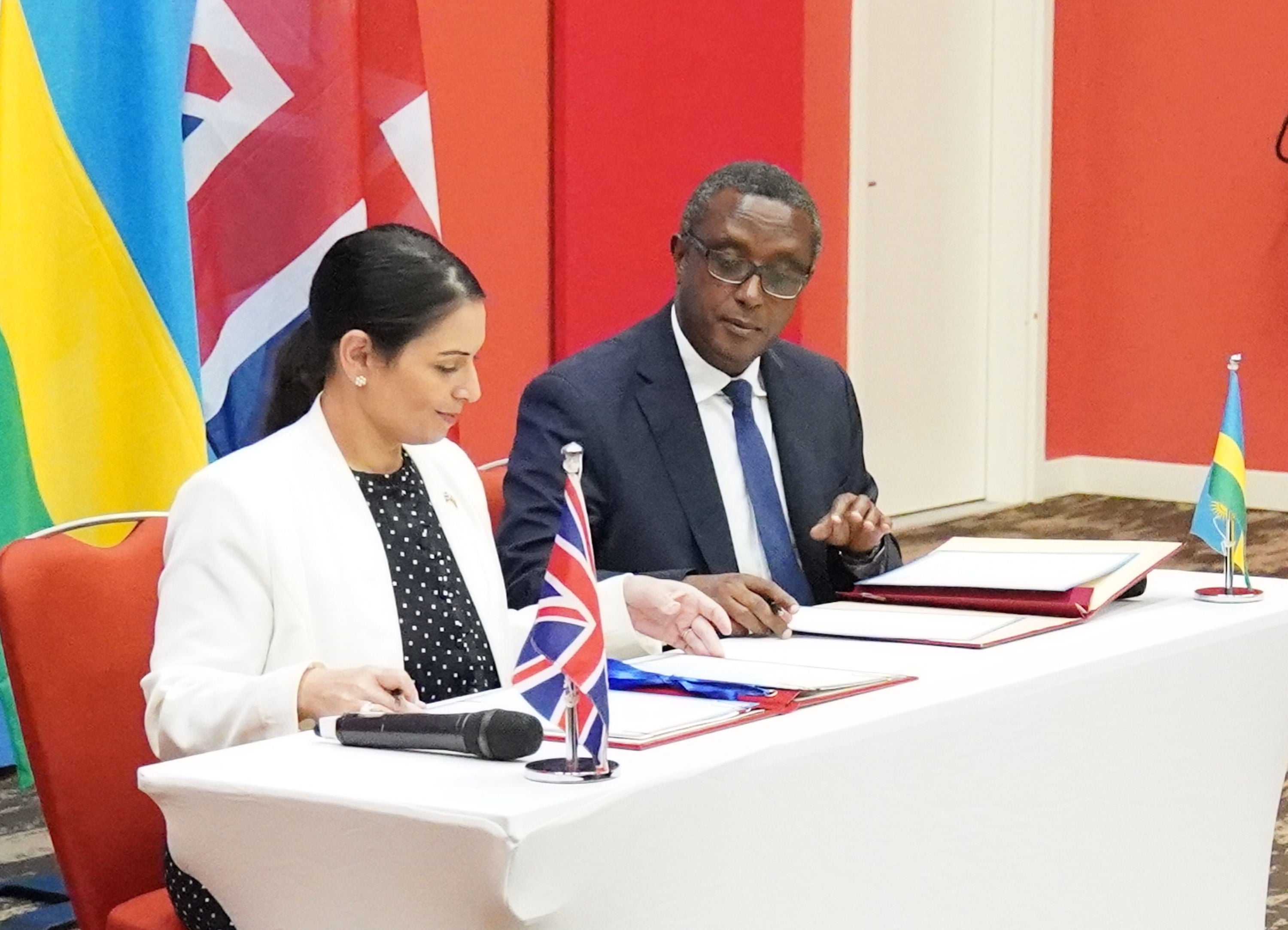Theresa May refuses to support Rwanda asylum policy after questioning legality
Former prime minister raises concerns over ‘legality, practicality and efficacy’ as Priti Patel defends scheme
Your support helps us to tell the story
From reproductive rights to climate change to Big Tech, The Independent is on the ground when the story is developing. Whether it's investigating the financials of Elon Musk's pro-Trump PAC or producing our latest documentary, 'The A Word', which shines a light on the American women fighting for reproductive rights, we know how important it is to parse out the facts from the messaging.
At such a critical moment in US history, we need reporters on the ground. Your donation allows us to keep sending journalists to speak to both sides of the story.
The Independent is trusted by Americans across the entire political spectrum. And unlike many other quality news outlets, we choose not to lock Americans out of our reporting and analysis with paywalls. We believe quality journalism should be available to everyone, paid for by those who can afford it.
Your support makes all the difference.Theresa May has said she does not support the Rwanda asylum policy and questioned its legality and effectiveness.
Addressing Priti Patel in the House of Commons, the former prime minister and home secretary asked for more details of the scheme and who will be affected by it.
“From what I have heard and seen so far, I do not support the removal to Rwanda policy on the grounds of legality, practicality and efficacy,” she said.
“If it is the case that families will not be broken up, where is her evidence that this will not simply lead to an increase in the trafficking of women and children?”
Ms Patel insisted the deal complied with international laws but refused to give parliament more details of eligibility requirements, offering to meet Ms May instead.
The home secretary said that the agreement was aligned with “all international and domestic legal obligations” and was part of wider efforts to combat people smuggling.
She told MPs that the current situation was putting “unsustainable pressures on our public services and local communities”, and that almost £5m was being spent every day on hotel accommodation for asylum seekers awaiting decisions.
“Access to the UK’s asylum system should be based on need, not on the ability to pay people smugglers,” she added.
Yvette Cooper, Labour’s shadow home secretary, said the costs were being generated by a backlog of asylum decisions caused by the Home Office.
“The only reason we’re paying a fortune in hotel costs is because Home Office decision making has completely collapsed on her watch,” she told the House of Commons.
“[Ms Patel] is asking Rwanda to do the job but she is not capable of … she is just using this policy to distract from years of failure.”
Ms Cooper called the policy “unworkable, unethical and extortionate”, questioning why the government had not given full information on costs.
She said there was “no evidence of a deterrent effect” after the Home Office permanent secretary Matthew Rycroft warned there was not an insufficient “level of assurance over value for money”.

“Criminals won’t be deterred because someone they exploited is sent to Rwanda,” Ms Cooper added.
“This will make it easier for criminal gangs and harder for those who need support.”
Ms Patel said there was an “up-front £120m cost” and that further payments would be made once people were removed to Rwanda, but did not tell MPs how much that would be.
The home secretary told MPs that decisions would be made on a “case-by-case” basis for those who have arrived in the UK on “illegal and dangerous routes”.
Crossing the English Channel clandestinely on small boats and lorries in order to claim asylum is not currently a crime.
The government is currently trying to change the law with the Nationality and Borders Bill, but a clause that would criminalise arrival in British waters has been removed by the House of Lords and will need to be re-inserted by MPs.
Sir Bob Neill, the Conservative chair of the Justice Committee, said there was a risk of legal challenge if the criteria for people transferred to Rwanda is not “published and transparently available”.
“Given that, would it not be much better to invest (the) significant amounts of money that we're talking about in speeding up the working of our current immigration system, the recruitment of more immigration tribunal judges and more investigative material resource for the Home Office, so that we can then do it without the financial and potential legal risks that the current scheme involves,” he added.
Ms Patel replied: “We are doing both.”
Labour's Hilary Benn asked the home secretary to outline the basis for asserting that the Rwanda policy will “have a deterrent effect on the number of people getting into boats to cross the Channel”.
Ms Patel replied: “This is exactly what is required to break up the evil people smuggling gangs, to bring in the deterrent effect alongside - I have been very, very clear there is no one single solution.”




Join our commenting forum
Join thought-provoking conversations, follow other Independent readers and see their replies
Comments